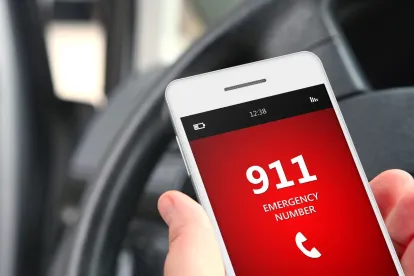Last week, the National Association of State 911 Administrators (NASNA) filed a Petition for Rulemaking; Alternatively, Petition for Notice of Inquiry (Petition) with the Federal Communications Commission (FCC or Commission) asking the Commission to take a more active role in regulating Next Generation 911 (NG911) deployments throughout the country.
In particular, the Petition asks the Commission to update its rules to:
-
establish authority over origination service providers (OSPs) delivery of 911 services through IP-based emergency services networks (ESInets);
-
amend its rules to advance the transition to – and implementation of – NG911 services; and
-
require OSPs to bear the cost of delivering NG911 calls, unless the state has an alternative cost-recovery mechanism.
NASNA’s Requests
NASNA’s first request is the easiest to digest: it urges the Commission to establish authority over the delivery of 911 services through ESInets by OSPs (e.g., wireless, landline, interconnected VoIP). This request is closely tied to NASNA’s second request, which asks the Commission to amend Section 9.4 and Section 9.5 of its rules to provide clarity and establish deadlines around the ongoing NG911 transition.
Section 9.4 of the FCC’s rules requires OSPs to transmit all calls to a Public Safety Answering Point (PSAP) or other appropriate emergency authority. The Petition asks the FCC to expand this obligation to require these calls be transmitted in an NG911 format using NG911 protocols.
Section 9.5 provides deadlines that have long since passed (e.g., 2001 and 2002) by which OSPs must deliver 911 calls to designated answering points. The Petition asks the Commission to update this rule and provide future deadlines by which OSPs must deliver 911 calls with standardized NG911 components (e.g., in SIP format, with location information attached to the SIP header, and using compatible location information). These deadlines would be dictated at the state and local level.
The Petition asks the FCC to establish an NG911 Readiness Registry. The deadline for an OSP to transmit calls in an NG911-compliant format would follow the appropriate 911 authority submitting its NG911 Readiness Certification. This idea mirrors the FCC’s text-to-911 rules, which require carriers to deliver text messages to PSAPs within six months of the PSAP certifying it is capable of receiving texts. A database of public safety answering points (PSAPs) capable of receiving texts is available on the Commission’s website.
NASNA’s final request may prove to be the most contentious because it deals with NG911 deployment costs. NASNA argues that allocating costs among the parties is essential to efficiently recognize the full benefits of an end-to-end NG911 call delivery system. A regulatory framework that allocates costs would provide state and local governments with budgetary certainty and expedite these deployments by minimizing cost allocation negotiations between the parties.
The Commission has established a cost allocation demarcation point in the past, but for a limited subset of wireless Enhanced 911 (E911) deployments as part of the agency’s 2001 King County Letter NASNA asks the FCC to take the same approach in a broader, NG911 manner. Under NASNA’s proposal, the Commission’s cost allocation demarcation point would act as a floor – much like the Commission’s rules implementing Kari’s Law – and would govern in the absence of stricter state law.
Conclusion
If you view the FCC’s rulemaking process as a marathon, this Petition represents the starting line. The Commission must now review NASNA’s request and determine whether to:
-
do nothing;
-
seek comment on the Petition, as filed;
-
draft and issue a Notice of Inquiry (NOI) that would gather information about NASNA’s proposal; or
-
propose rule changes that would be subject to public input and debate before being adopted.
It is an important decision because the Commission’s next step will shape future NG911 deployments for decades. For a more thorough discussion of the Petition, sign up for a seminar through the Federal Communications Bar Association on November 4, 2021 from 3:00 – 5:00 PM (EST).




 />i
/>i

